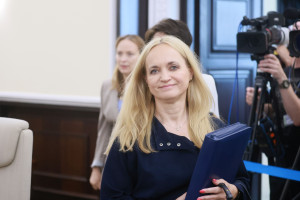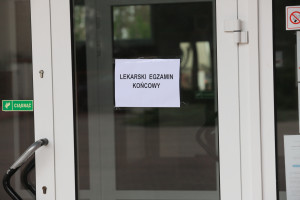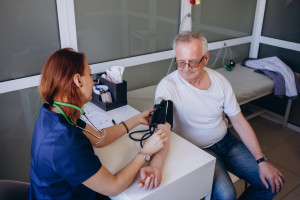National Hematology Network. The Ministry of Health has resumed work on the pilot program. "There is significant support for the project."

- I can confirm that the Ministry of Health has resumed work on the pilot project of the National Hematology Network, says Dominika Janiszewska-Kajka from the Ministry of Health.
- The project was consulted on in 2023, but a decision was made that due to limited financial resources, the activities in this matter would be halted - he explains.
- Currently, meetings are being held between representatives of the Ministry of Health and medical experts, the National Health Fund and the e-Health Centre, the aim of which is to verify the project assumptions.
- The verification covers, among other things, pilot costs - he adds
"The systemic needs of hematooncology can be divided into three areas. The first is improving access to hematological diagnostics. There are many problems here, but the main issue is adding immunophenotyping to the guaranteed benefits package , a basic test in hematology, which, depending on the suspected diagnosis, is performed either on peripheral blood or bone marrow. This would reverse the pyramid of benefits . This is especially important because we use this test not only for diagnosis but also to assess measurable residual disease, i.e., the depth of remission achieved by patients," said Prof. Ewa Lech-Marańda , national consultant in hematology, at a meeting with journalists.
"The second area concerns reimbursement and providing patients with medication. This is where the financing and billing for supportive care comes to the fore. These are two issues that we face significant challenges with in hematology departments. The first is the treatment of complications following CAR-T therapy , namely cytokine release syndrome and neurotoxicity associated with therapy administration. The second is the treatment of severe fungal, viral, and multidrug-resistant bacterial infections . Funding for costly antibiotics is necessary, but this issue remains unresolved. Meanwhile, in patients with immunocompromised patients, we experience very serious infectious complications, the treatment of which is costly," the expert explained.
The Ministry of Health is once again working on a pilot project for the hematology network."The third issue is the need to create systemic security that will address the challenge of the growing number of patients with hematological cancers, coupled with limited human resources. Our proposal is to pilot a National Hematological Network . The project was prepared and submitted to public consultation in August 2023, nearly two years ago. Now we hope to reactivate it – we know the Ministry of Health is currently considering it," the national consultant pointed out.
She noted that the network would be based on the reference centers and seamless collaboration between them, which would provide patients with, among other things, broader access to drug programs. The network would also ensure coordination and comprehensiveness , including consultations with specialists in other fields for patients with multimorbidity. The network would measure the quality of diagnostics and treatment using established indicators and metrics. The project also includes collaboration with primary care physicians, providing prepared guidelines for referring patients to a hematology clinic or hematology department, as well as standards for chronic care.
Dominika Janiszewska-Kajka , deputy director of the Department of Therapeutics at the Ministry of Health, confirmed that the Ministry of Health has resumed work on the pilot project of the National Hematology Network.
"In 2023, a decision was made to halt efforts due to limited financial resources. Currently, meetings are being held between representatives of the Ministry of Health, medical experts, the National Health Fund, and the e-Health Center, aimed at verifying the project's assumptions in two areas: the pilot project costs and the research list, the list of which may need to be expanded," she noted.
"Right now, we're primarily focused on IT issues and diagnostic and therapeutic recommendations. The project's assumptions will then be reviewed by the AOTMiT. The question of whether the project will need to be resubmitted for public consultation remains open for now. Importantly, the hematology community is united on this matter – support for this project among these specialists is very strong," emphasized Dominika Janiszewska-Kajka.
There must be enough money for drug reimbursement for everyoneMateusz Oczkowski , deputy director of the Department of Drug Policy and Pharmacy at the Ministry of Health, referred to reimbursement issues.
"The reimbursement system in Poland is probably the most flexible of all systems in Europe because we reimburse off-label indications, something many other countries do not. In Poland, the Minister of Health can initiate such procedures ex officio," he reminded.
"However, it's important to remember that we need to have enough funding not only for hematooncology, which is attracting significant interest from pharmaceutical companies in submitting reimbursement applications, but also for other areas. We also need to ensure that we can afford to ensure that patients who receive access to therapy today will be able to continue using it in a few years," Oczkowski added.
Copyrighted material - reprint rules are specified in the regulations .
rynekzdrowia












